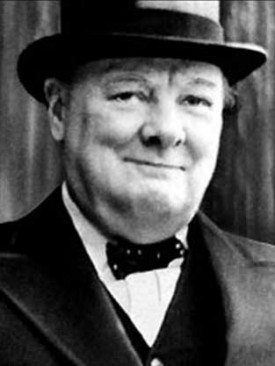In a meeting this morning, a couple of individuals whom I respect a great deal were referring to a mutual friend of ours as "a genius," citing examples of the notable expertise that he has developed. While I nodded my head in agreement, I was also considering the mistake that was being made in that assessment. Because, in my view, labeling this man a “genius” might actually diminish the work he undertook to accomplish what he has. I know for a fact, and so did they, that he had spent countless hours (easily 15,000) over the last 15 years perfecting one single area of expertise. He was not simply "a genius." He worked extremely hard to get where he is. 
The point is, he not only worked hard, he disciplined himself to become great at what he did. I don’t doubt that he began with very strong predispositions and inherent talents toward his proficiency, but what really made the difference is that he woke up every morning with determination to do his best, again, and again, and again...
The reason for my passing this on to you is simple: The best way to coach people toward success is first to firmly establish where they want to go, then help them determine how they are going to get there...not in giant leaps, rather with small steps, every day.
In our times of instant gratification and low frustration tolerance, your primary role will be to stay watchful for the inevitable signs of fatigue and frustration. Then when you see them, re-frame the person's pain, and remind them that very few things worth having come easily.
Here are some quotes to emphasize my point:
"Character may be manifested in the great moments, but it is made in the small ones." —Winston Churchill
"We do no great things, only small things with great love." —Mother Teresa
"I long to accomplish a great and noble task, but it is my chief duty to accomplish humble tasks as though they were great and noble." —Helen Keller
Editor's Note: This article was written by Dr. David Mashburn. Dave is a Clinical and Consulting Psychologist, a Partner at Tidemark, Inc. and a regular contributor to WorkPuzzle. Comments or questions are welcome. If you're an email subscriber, reply to this WorkPuzzle email. If you read the blog directly from the web, you can click the "comments" link below.




Comments